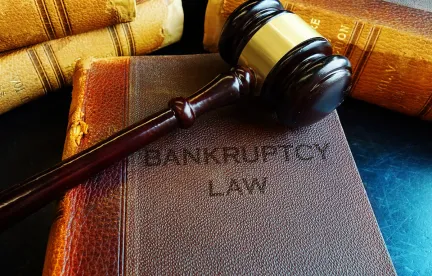As Celsius Network LLC, et al., Case Number: 22-10964 (MG), proceeds in the Bankruptcy Court for the Southern District of New York (the “Court”) over the last month there have been a number of important updates in the case. Here are some highlights as of October 14, 2022:
-
Though Debtor filings and Committee investigations have revealed a great deal more to the public about the Debtors’ financial affairs, insider activity, and the path and direction of the bankruptcy case, there is still little indication of how claims will be treated and repaid in this case. This is particularly true of claim holders who have “Earn” accounts where prior withdrawals may be clawed back.
-
Over the next few months, the Court will determine the ownership status of certain accounts and how those accounts will be treated, and the Debtors will present a plan of reorganization for Court approval which will give creditors a better sense of how the Debtors intend to treat all claims. After that plan is presented, creditors will have an opportunity to vote to “accept” or “reject” the plan.
-
Claims and Proof of Claim Process
-
On October 5th, 2022, the Debtors filed their Schedules of Assets and Liabilities with the Court (the “Schedules”). On these Schedules, the Debtors list what they believe to be customer account balances as of July 13, 2022, the day that the bankruptcy petition was filed (the “Petition Date”). Customers can view Debtor Celsius Network, LLC’s Schedules on page 92 of Docket No. 974. Debtor Celsius Network, LLC’s Statement of Financial Affairs is available at Docket No. 973.
-
Interestingly and potentially of concern to certain creditors, the Schedules also list all withdrawals from the accounts in the 90 days preceding the Chapter 11 filing. This likely indicates a serious consideration in the Debtors to claw back these funds.
-
If a creditor agrees with the Schedules as-filed, and if their claims are not listed as “contingent,” “unliquidated,” or “disputed,” the Creditor is not required to file an additional proof of claim. However, it may still be a better practice to file a proof of claim to ensure the claim is correct and that the court has a copy of any supporting documentation.
-
Regardless, a creditor should wait to file a proof of claim since the current proof of claim form available through the Stretto website is expected to be revised to make it easier for customers to submit information related to their crypto balance. More information on this will be provided once the Court makes a ruling about on procedures.
-
The Debtors have filed a motion requesting to establish the general claims bar date (for non-governmental entities) as December 13, 2022 by 5:00 p.m. prevailing Eastern Time. If the Court grants this request, all general creditors must file a proof of claim by that date unless they wish to rely on their claim being listed on a schedule.
-
-
Classification of Claims and Ad Hoc Committees
-
There are at least four types of creditors who have accounts at Celsius which are currently blocked due to the bankruptcy, and it’s still up in the air as to how the court is going to treat them.
-
Custody Accounts. These are accounts that did not earn interest and where funds were to some extent held on behalf of the owner. The Debtors have agreed to return these funds and not consider them part of the bankruptcy estate, though now it appears that they intend to cap the amount that they are going to return and/or not return assets that were in Earn Accounts prior to the bankruptcy filing. A group of these holders have created an “ad hoc committee” represented by the law firm of Togut Segal & Segal LLP to represent their interests. Unlike the Unofficial Creditors Committee, the fees of these ad hoc committees are not being paid by the Debtors. The parties will brief these issues to the Court over the coming weeks and will determine how to “treat” these accounts by December.
-
Withhold Accounts. Withhold accounts are very similar to custody accounts where the assets did not earn interest. In many cases withhold accounts were issued to people residing in places such as New York where the Debtor was not authorized to provide custodial services. Like the custody accounts, a number of these holders have set up an ad hoc committee represented by Troutman Pepper Hamilton Sanders LLP. These holders have also agreed with the Debtor that it will decide how it is treating their accounts by December.
-
Earn accounts. These are interest accounts whereby a holder deposited crypto assets with the Debtor and earned interest on the assets deposited. This interest stopped accruing on the bankruptcy petition date. The majority of claims against the Debtor, likely in the amount of about 4 billion USD at current crypto valuation, is in an earn account. The Debtor has not committed to deciding how it views these accounts by a particular date. Chances are these accounts are likely to be viewed as assets of the estate and subject to a 90-day clawback.
-
Borrow Accounts: These are accounts containing collateral which was used for loans that account holders received from the Debtor. See please below regarding obligations to pay interest on these loans.
-
On December 7 and 8, the Court will hold a hearing to discuss the “Custody” and “Withhold” accounts and ownership of the same. In other words, the Court will hold a hearing to determine whether these cryptocurrency assets are property of the bankruptcy estate or not.
-
-
-
Appointment of an examiner.
-
Debtors’ CEO Alex Mashinsky (“Mashinsky”) resigned from his position on September 27, 2022. Reports have since emerged that Mashinsky withdrew nearly $2.9 million in cryptocurrency and that entities related to Mashinsky withdrew more than $7.1 million from Celsius accounts in multiple transactions in May 2022.
-
The Court Judge has agreed to appoint a chapter 11 examiner to investigate Celsius leadership’s prepetition conduct, including allegations of both civil and criminal misconduct.
-
The Court appointed Shoba Pillay, a Chicago-based partner at the law firm Jenner & Block, as an examiner in this case. The expected role of the examiner is a bit amorphous but includes looking into the status of the claims as being assets of the estate as well as determining what third parties the Debtors should pursue claims against. Recent news that Mashinsky and other executives withdrew about 17 million dollars from the company around the time of the filing is likely to increase pressure to pursue claims against him. However, in a case involving multibillions in creditor money, it is unlikely that the recovery of less than 20 million dollars will offer meaningful restitution to the creditors. The Examiner has agreed to provide interim findings in a few weeks’ time in order to assist the Debtors in determining the status of the custody and withhold accounts with a final report expected in the not too distant future.
-
The Official Committee of Unsecured Creditors, which commenced an investigation into Machinsky’s conduct and demanded his removal as CEO, filed a statement following Machinsky’s resignation that it remains optimistic that a Chapter 11 plan is possible and that an open and transparent process will maximize value. The Committee stated that it intends to pursue any actionable claims against Mr. Mashinsky, other insiders, and any related parties for the benefit of all account holders and unsecured creditors.
-
-
Asset Sales.
-
On September 15, the Debtors filed a motion asking the Court for permission to sell its “stablecoin” stock for U.S. dollars. According to the filing, Debtors own eleven different forms of stablecoin, totaling approximately $23 million. Because the stablecoins are pegged to fiat currency, the Debtors argue that the stablecoins offer a stable cryptocurrency option that is not subject to market fluctuations and plans to monetize those assets as needed in order to generate liquidity and fund operations during the bankruptcy case.
-
On September 27, the Debtors noticed a sale of certain “de minimis” assets, which included the sale of 169,467 shares of common stock in Orgenesis Inc., a company that researches and develops cell and gene therapies, which is owned by Debtor Celsius Network Ltd.
-
On September 29, the Debtors filed a motion seeking approval of bidding procedures for a sale of its retain platform. The Debtors’ proposed sale would include the Debtors’ account holders, loan portfolio, and related technology, custody and swap services, and staking and mining operations. A hearing on the motion is set for October 20, 2022.
-
-
Rejection of Motion to Redact Names of Claim Holders.
-
Debtors had filed a motion for authorization to redact individual names from any documents and to implement an anonymized process by which to identify individuals in connection with account balances on any documents filed publicly on the docket.
-
The Court ruled that while the names of creditors could not be hidden from public view, the email and home addresses of individual creditors could be redacted. The Court’s decision to shield the email and home addresses was made to reduce individual creditors’ risk of identity theft, among other reasons.
-
-
Request for an Equity Committee.
-
Certain equity holders requested that they be granted an official equity committee to look after their rights to determine whether the equity will have any value and whether they will have any claim to it. Unless all creditors are paid-in-full with interest, there is no value to the equity. The court registered this request.
-
-
Loan Collection Efforts.
-
On September 30, the Debtors filed a statement regarding Debtors’ loan collection efforts toward account holders with outstanding loans. The statement shared that while a borrower’s obligation to repay maturing loans on the Debtors’ platform remains in force during the bankruptcy case, the Debtors will not seek to enforce payment obligations on account of outstanding loans during the chapter 11 cases and borrowers do not need to repay such loans during these chapter 11 cases. Further, no interest or penalties will be assessed post-maturity. Further, while a borrower can make payments on its outstanding loan, the Debtors will not release any collateral to borrowers or set off any claims until the Court orders otherwise.
-
-
Next omnibus hearing is set for October 20, 2022.





 />i
/>i

